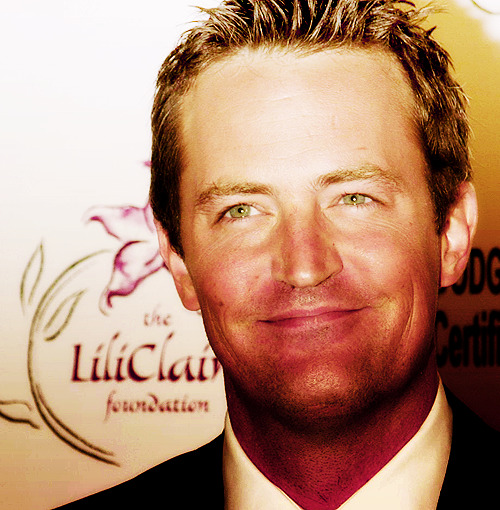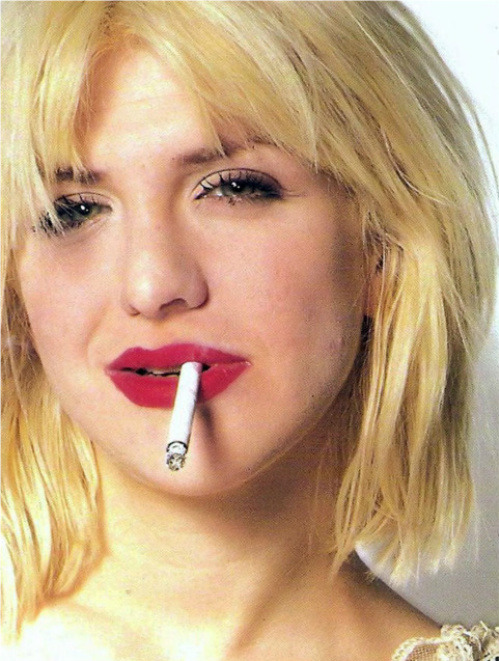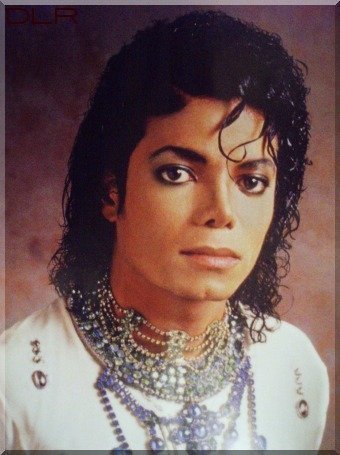Hollywood stars usually set the trends that the rest of us follow — in the cities, to suburbia and beyond.
But not in the case of painkiller addictions... ( Hopefully ! )
But what is exactly " painkillers" & what is their effect ??
But not in the case of painkiller addictions... ( Hopefully ! )
But what is exactly " painkillers" & what is their effect ??
The effective chemicals in prescription painkillers — called "opioids" — are derived from the same poppy plant used to make opium and heroin. Painkillers give a feeling of euphoria and, just like heroin or opium, carry a high risk for abuse and recreational use.
The popularity of opiates literally spread during the late 1990s, after pain management specialists went on a mission to treat chronic pain.
Dr. Andrew Kowal, director of the Pain Center at the Lahey Clinic in Burlington, Mass, states that between 1997 and 2005, methadone prescriptions shot up by 1,000 percent, oxycodone prescriptions (slow acting OxyContin) went up 600 percent and prescriptions for generic Vicodin increased 200 percent.
Anyone can become dependent on prescription painkillers, but addiction often begins with an emotional dependence. "People start self-treating their anxiety, depression or loneliness," Kowal revealed.
"That's why you see a lot of the Hollywood stars with it," he said. "Even though they're popular and famous and surrounded by lots of people they're ultimately lonely."
The following stars have dealt with an addiction to painkillers — or "hillbilly heroin," as one celebrity called it. Many of their stories reflect the pain and emotional turmoil that has resulted from the painkiller addiction boom.
Nicole Richie
Though the pint-size "Simple Life" star seems happy and healthy in her new role as a mother, she has a notorious track record for dangerous behavior and dramatic weight loss.
Richie, who has previously been addicted to heroin and alcohol, added a new substance to her record in December 2006 when she drove her sport utility vehicle the wrong way down a California freeway. Police arrested her and found Richie to be under the influence of Vicodin, the heavy-duty pain medication on which many stars have become dependent.
Richie claimed that she took the pain medication for menstrual cramps, a statement that raised a few eyebrows in celebrity gossip magazines and on Internet forums. After the arrest, Richie admitted to having a history of dodging responsibility.
"I really wasn't learning anything from that," the celebrity told ABC News. "So I kept making bad decisions or mistake after mistake after mistake. And I wasn't growing. I wasn't going anywhere."
Richie now appears to have kicked her substance abuse habits and seems to be focused on her relationship with rocker boyfriend Joel Madden and their baby, Harlow Winter Kate Madden.
"I owe the baby my life," Richie said. "I owe this baby everything and I have a responsibility now. Besides being responsible for myself, I'm now responsible for someone else. And I have to set the right examples. I have to really be someone that I would want my child to look up to."

Winona Ryder
For years, Ryder was generally a well-respected actress in Hollywood with two Oscar nominations.
Then, in 2001, Ryder was arrested at Saks Fifth Avenue for shoplifting $5,000 worth of clothing and accessories. Though the shoplifting charges took the spotlight, authorities also found eight different painkillers in Ryder's purse, according to The Los Angeles Times.
Police said at the time that she was carrying oxycodone without a prescription, which her lawyer later challenged.
"The attention was what was embarrassing," Ryder said in an 2007 interview with Vogue. "It was the December after Sept. 11. … So much attention was being paid to me, when we had just been attacked, and there was all this really important news going on."
Ryder told Vogue of the events leading up to her arrest. "Two months prior to that, I broke my arm in two places, and the doctor … was giving me a lot of stuff [oxycodone, not to be confused with OxyContin] and I was taking it at first to get through the pain," Ryder said.
"And then there was this weird point when you don't know if you are in pain but you're taking it," Ryder added. "Have you ever taken painkillers? It isn't a reckless [state], like you're out of your head. It's just confusion."
Matthew Perry
Perry, 42, shot to stardom when he was cast as the sarcastic, yet lovable, Chandler Bing on the hit TV show "Friends."
But at the height of the actor's success, Perry's partying led him to one addiction after another.
"I got into a serious problem with painkillers, a painkiller called Vicodin," the actor said in an interview with Larry King in August 2002. "And that was mostly just to not drink as much as I was. I was getting too hung over, so I tried other things that would try to balance me out."
In 1997, Perry recognized his addiction issues and checked himself into rehab to kick the habit.
"I guess it was around April that I realized the level, the severity of the problem that I was having," Perry admitted in a 1998 interview with CNN. "And I'm really proud that I kind of stepped up to the bat and took care of it. For me, it was a no-brainer. It was just — this is obviously what I have to go do."
But that was not the end of Perry's painkiller abuse. In May 2000, he was hospitalized for pancreatitis, a rare inflammation that can be caused by alcohol and drug abuse. By 2001, he had checked in to the Malibu clinic Promises to keep his addictions at bay.
Now, he says he has kicked the painkillers. He's back to acting and currently working on a new film called "Seventeen Again" with Zac Efron.
Kelly and Jack Osbourne
This brother and sister celebrity pair — offspring of Ozzy "Prince of Darkness" Osbourne — inherited more than their father's fame.
The younger Osbournes followed their father's path of drug use and hard partying. While still young adults both Kelly and her younger brother, Jack, fell victim to painkiller addiction.
In April 2004, Sharon and Ozzy confronted their daughter and had her check into the Promises treatment center in Malibu, Calif.
"She didn't put up a fight," Sharon said on an April 2, 2004 episode of CNN's "Larry King Live."
"It happened so quickly, she didn't have time. It was so much of a shock she said, 'I'll go.'"
The family admits they've had their share of problems with drug use.
"It's a family illness," Ozzy told King. "It's in the genes. In this day and age, the availability of getting drugs is amazing."

The news of Kelly's rehab visit came on the heels of Jack's stint in rehab a year before. The hard-partying teenager admitted to being addicted to the painkiller OxyContin and voluntarily checked in to Las Encinas Hospital in Pasadena, Calif.
Jack's time in rehab had a profound effect on him.
"I took myself out of the picture for a second and I looked around at every single person in the room, at who they were, how old they were and what they had going on in their lives," Jack said in a July 2003 interview with MTV News.
"A lot of them were near 30, unemployed, living off their parents," he said. "There were heroin addicts, there were the world's biggest couch potatoes. And it was like, 'I don't want to be like that. I don't want my life to be controlled by a drug.'"
Jamie Lee Curtis
Curtis debuted in independent horror films, like "Halloween" and "Prom Night", as the sexy ingenue who always outwitted the bad guys. But the "scream queen" was less successful at evading her off-screen demons.
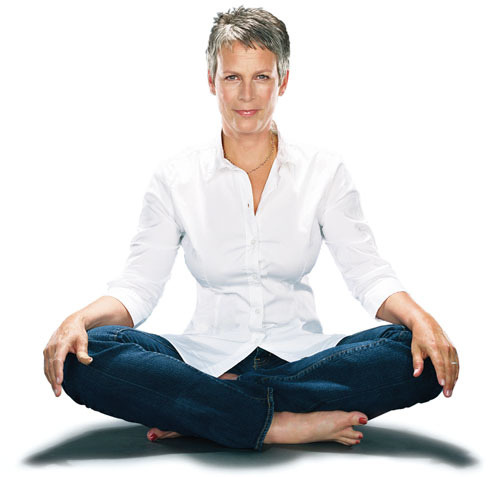
Curtis, also a recovering alcoholic, began taking painkillers after a cosmetic procedure and became addicted to them.
"I would anesthetize myself on a daily basis," Curtis said in an interview with Reader's Digest. "And I found painkillers were very helpful because they did the job without the messiness of alcohol. When my mother was so ill, there was a lot of pain medicine around. The bottle of liquid codeine that sat on her bathroom cabinet — don't think I didn't see it."
Curtis has since worked to overcome her addictions.
She sits on the board for the National Center for Addiction and Substance Abuse at Columbia University and forgoes many film projects in favor of spending time with her husband, actor Christopher Guest, and their two children.
Eminem
The Grammy- and Oscar-winning recording artist makes no secret of his history of drug use.
Eminem, born Marshall Mathers, rapped about his drug use in songs such as "Drug Ballad," "These Drugs" and "Under the Influence." His song "I'm Shady" on "The Slim Shady" LP, released in 1999, includes the line: "Well, I do take pills, don't do speed/don't do crack, don't do coke/I do smoke weed/don't do smack/I do do 'shrooms, do drink beer/I just wanna make a few things clear."
"I would anesthetize myself on a daily basis," Curtis said in an interview with Reader's Digest. "And I found painkillers were very helpful because they did the job without the messiness of alcohol. When my mother was so ill, there was a lot of pain medicine around. The bottle of liquid codeine that sat on her bathroom cabinet — don't think I didn't see it."
Curtis has since worked to overcome her addictions.
She sits on the board for the National Center for Addiction and Substance Abuse at Columbia University and forgoes many film projects in favor of spending time with her husband, actor Christopher Guest, and their two children.
Eminem
The Grammy- and Oscar-winning recording artist makes no secret of his history of drug use.
Eminem, born Marshall Mathers, rapped about his drug use in songs such as "Drug Ballad," "These Drugs" and "Under the Influence." His song "I'm Shady" on "The Slim Shady" LP, released in 1999, includes the line: "Well, I do take pills, don't do speed/don't do crack, don't do coke/I do smoke weed/don't do smack/I do do 'shrooms, do drink beer/I just wanna make a few things clear."
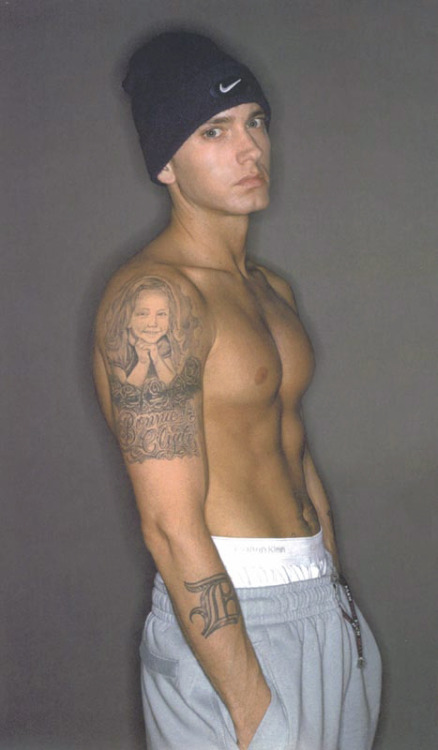
Eminem, one of the highest-selling rap artists of all time, known for his complex and controversial lyrics, admitted that the initial fame changed his behavior.
A friend told the Sunday Mirror that at one point Eminem was drinking a bottle of rum mixed with ecstasy and tablets of the painkiller Vicodin.
In fact, Eminem, 38, displays his affinity for the prescription painkiller as candidly as he does his love for his daughter, Hailie Jade; he has both images tattooed on his body.
"Hailie's birth was a wake-up call," Eminem told the Sunday Mirror. "She made me get … in gear, to make something of my life and try 10 quadrillion times harder than I had before. Everything I do is for her."
Courtney Love
The 46-year-old is almost as famous for her rock star antics fueled by alcohol and drug abuse, as for her rock music. Though Love has not confirmed a painkiller addiction, painkillers have certainly made it on her list of recreational drugs.
Love, the former lead singer for the band Hole, was arrested in 2003 after she went to her ex-boyfriend's home and broke a window. Officers on the scene said that Love was intoxicated at the time and she was later charged with illegal possession of the painkillers OxyContin and hydrocodone.
Love admitted to using OxyContin, and thought she had a prescription for both medications. Love's husband, Nirvana frontman Kurt Cobain, also had a history of drug use and committed suicide at age 27.
"There are many people out there who are legitimately given these prescriptions by physicians, but they will divert them," said Kowal, who explains that people in need of cash can get a high return for selling their drugs.
"People may come asking for them to sell it and say 'Hey Jim, I heard you have a prescription for Percocet, I'll give you $10 a pill."
A person with a month's worth of OxyContin could face the temptation to make a good deal of money.
"You could get $2,400 for medicine on the street you just paid $10 for at the pharmacy."
Charlie Sheen
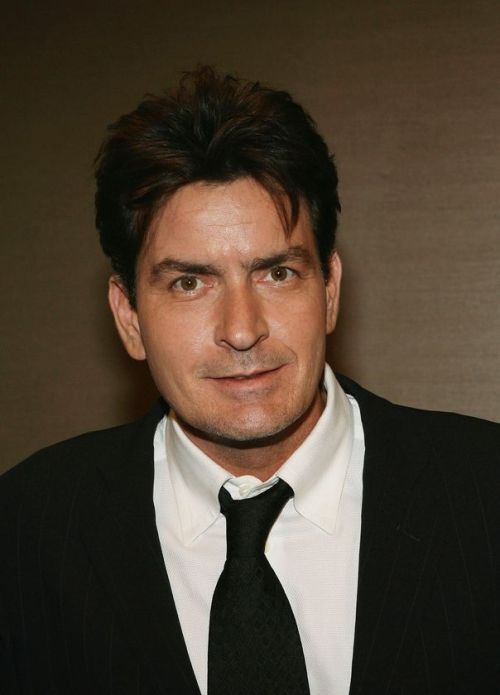
With a reputation as one of Hollywood's inveterate bad boys, Sheen has been known for his multiple, tumultuous love affairs, his penchant for prostitutes and his substance abuse.
Along with other drugs, painkiller medications are on Sheen's list of addictions. His abuse of these and other drugs, combined with heavy drinking, put the actor on extended probation. This punishment came on top of a previous one-year prison sentence after Sheen was convicted of beating his then-girlfriend Brittany Ashland in December 1996.
Sheen's destructive behavior was so marked, his father, Martin Sheen, asked prosecutors to file probation violation charges against his son.
Drugs continued to haunt Sheen's personal life. Denise Richards, Sheen's second wife, left him in 2005 while she was still pregnant with their second daughter. According to CNN's "Showbiz Tonight's" Brook Anderson, nasty allegations flew in the divorce papers, alleging that Sheen was once again addicted to painkillers.
Though experts say much research does not support addictive personality theories, they agree that addiction is partially inherited and partially due to personal history.
"Most studies point to approximately 50 percent of addiction being genetic," said Christopher Welsh, an addiction specialist and assistant professor of psychiatry at the University of Maryland School of Medicine. "A lot of what then happens depends on personality, environmental influences and social and familial influences."
Michael Jackson
The King of Pop, whose long history of scandal almost matches his illustrious music career, found his dependency on painkiller medication less than "thrilling."
His struggle with the medications lead the megastar to abruptly cancel his worldwide "Dangerous" tour in 1993. Jackson claimed that the addiction stemmed from a burn injury he suffered in 1984 when filming a Pepsi commercial. He also claimed that the mental stress of child-molestation allegations fueled his need for medicine.
"I was humiliated, embarrassed, hurt and suffering great pain in my heart," the pop star said in a 1993 audiotape statement. "I became increasingly more dependent to the painkillers to get me through the days of the tour. My friends and doctors advised me to seek professional guidance immediately in order to eliminate what has become an addiction."
Although Jackson apparently managed to kick the habit in rehab, he has not been able to kick the criticism and conjecture in the media. The singer received more allegations of child molestation and continued to display increasingly bizarre behavior, like dangling his new baby over a balcony.
Anna Nicole Smith
This deceased celebrity heiress was famous for her soap-opera-scandalous life and her untimely death. While her death was ruled an overdose of anxiety and depression drugs, Smith had a history of painkiller addiction.
The former Playboy Playmate of the Year claimed that prescription drugs such as methadone nearly took her life.
"I actually went into a coma, you know. I almost died. And I had to learn how to walk again and all this and that," Smith told CBS News. "I had to rehabilitate myself. And then they took the nurse away, so there I was crawling — crawling to the bathroom and stuff."
The blond bombshell admitted that she became addicted to painkillers when her 89-year-old millionaire husband, J. Howard Marshall II, fell ill and died. The addiction was bad enough that Smith ended up in the Betty Ford rehabilitation center.
"It worked," Smith told Larry King in a May 2002 interview. "It got me off everything. It was hard. I hated it. I'll never go back. … They treat you terribly."
Cindy McCain
Cindy McCain, wife of presidential hopeful Sen. John McCain, R-Ariz., claimed that emotional and physical stress prompted her addiction to painkillers.
After two back surgeries, McCain became hooked on Percocet and Vicodin and continued to take the drugs during the Keating Five banking scandal surrounding the McCain couple in 1989-92.
McCain's habit worsened to the point where she began to steal pills from the American Voluntary Medical Team, an organization she founded to aid developing countries.
"I was an addict. That's why," McCain told CNN when asked about the theft. "I tell you, addiction is a very cunning enemy."
Kowal says it's important to understand the difference between what people call addiction, and what should be called a physical dependence. People may form a physical dependence and have withdrawal symptoms, but as Cindy McCain said, addiction is a much more destructive beast.
"Addiction is an inability to stop using a drug, illegally or legally, even though it's causing harm to yourself, your life or your career," Kowal said.
While it took some fast political footwork to keep the senator's reputation intact, his wife received treatment and is no longer addicted to pain medication.
Rush Limbaugh
Few celebrities have taken control of a painkiller addiction rumor like the conservative radio pundit, Rush Limbaugh.
Though the National Enquirer broke the story of Limbaugh's painkiller addiction in October 2003, Limbaugh promptly admitted on his radio show that he had a problem.
"You know I have always tried to be honest with you and open about my life," he told the millions who listen daily. "I need to tell you today that part of what you have heard and read is correct: I am addicted to prescription pain medication."
"I refuse to let anyone think I am doing something great here, when there are people you never hear about, who face long odds and never resort to such escapes. They are the role models," he said.
Limbaugh's announcement hardly ended the matter. In 2006, he turned himself in to Palm Beach County police for charges of "doctor shopping," according to The Washington Post.
Court documents linked Limbaugh to several painkiller prescriptions filled at several pharmacies from doctors in New York, California and Florida, according to the Post.
Kowal says that "[celebrities] have access to these things, they have the money of course to pay for it, but they have physicians in every city they travel around the world."
"There are physicians who are star struck and they want to do whatever they can. They don't know what the other doctor did in London in New York," Kowal said.
Because Limbaugh turned himself in and agreed to undergo rehabilitation, the initial charges were dropped.
Chevy Chase
Chase's story of painkiller addiction (and recovery) long preceded the boom in painkiller addictions in the 1990s.
In 1986 Chase checked himself into the Betty Ford Center — an ironic move considering he made his comic mark by imitating President Ford's clumsy falls on "Saturday Night Live"
At the time, Chase's agent Pat Kingsley said the treatment was for "dependency on prescription drugs relating to chronic and long-term back problems" resulting from years of stunts dating to his days on "Saturday Night Live," according to the United Press International.
Shortly after Ford's death in December 2006, Chase wrote to The New York Times supporting the Betty Ford Clinic and its work.
"During my short stay there," he wrote, "I often saw Mrs. Ford personally surveying the clinic and generously offering a helping hand."
"If it hadn't been for the courage of Mr. Ford's wife, Betty, for admitting to an alcohol problem, I would never have received the help I needed," he added.
After his time in rehab, Chase was invited to lunch with the Ford family and formed a friendly acquaintance, according to the Times.
Elvis Presley
Presley was a pioneer of rock 'n' roll music, and the extreme lifestyle that goes with it. He dated gorgeous women, bought a flashy mansion and took drugs.
When Presley died in 1977, reportedly of heart complications, questions about his painkiller addiction began to snowball into accusations. But Presley didn't quite doctor-shop; he received many pain medicine prescriptions from a single man — Dr. George Nichopoulos.
"I actually went into a coma, you know. I almost died. And I had to learn how to walk again and all this and that," Smith told CBS News. "I had to rehabilitate myself. And then they took the nurse away, so there I was crawling — crawling to the bathroom and stuff."
The blond bombshell admitted that she became addicted to painkillers when her 89-year-old millionaire husband, J. Howard Marshall II, fell ill and died. The addiction was bad enough that Smith ended up in the Betty Ford rehabilitation center.
"It worked," Smith told Larry King in a May 2002 interview. "It got me off everything. It was hard. I hated it. I'll never go back. … They treat you terribly."
Cindy McCain
Cindy McCain, wife of presidential hopeful Sen. John McCain, R-Ariz., claimed that emotional and physical stress prompted her addiction to painkillers.
After two back surgeries, McCain became hooked on Percocet and Vicodin and continued to take the drugs during the Keating Five banking scandal surrounding the McCain couple in 1989-92.
McCain's habit worsened to the point where she began to steal pills from the American Voluntary Medical Team, an organization she founded to aid developing countries.
"I was an addict. That's why," McCain told CNN when asked about the theft. "I tell you, addiction is a very cunning enemy."
Kowal says it's important to understand the difference between what people call addiction, and what should be called a physical dependence. People may form a physical dependence and have withdrawal symptoms, but as Cindy McCain said, addiction is a much more destructive beast.
"Addiction is an inability to stop using a drug, illegally or legally, even though it's causing harm to yourself, your life or your career," Kowal said.
While it took some fast political footwork to keep the senator's reputation intact, his wife received treatment and is no longer addicted to pain medication.
Rush Limbaugh
Few celebrities have taken control of a painkiller addiction rumor like the conservative radio pundit, Rush Limbaugh.
Though the National Enquirer broke the story of Limbaugh's painkiller addiction in October 2003, Limbaugh promptly admitted on his radio show that he had a problem.
"You know I have always tried to be honest with you and open about my life," he told the millions who listen daily. "I need to tell you today that part of what you have heard and read is correct: I am addicted to prescription pain medication."
"I refuse to let anyone think I am doing something great here, when there are people you never hear about, who face long odds and never resort to such escapes. They are the role models," he said.
Limbaugh's announcement hardly ended the matter. In 2006, he turned himself in to Palm Beach County police for charges of "doctor shopping," according to The Washington Post.
Court documents linked Limbaugh to several painkiller prescriptions filled at several pharmacies from doctors in New York, California and Florida, according to the Post.
Kowal says that "[celebrities] have access to these things, they have the money of course to pay for it, but they have physicians in every city they travel around the world."
"There are physicians who are star struck and they want to do whatever they can. They don't know what the other doctor did in London in New York," Kowal said.
Because Limbaugh turned himself in and agreed to undergo rehabilitation, the initial charges were dropped.
Chevy Chase
Chase's story of painkiller addiction (and recovery) long preceded the boom in painkiller addictions in the 1990s.
In 1986 Chase checked himself into the Betty Ford Center — an ironic move considering he made his comic mark by imitating President Ford's clumsy falls on "Saturday Night Live"
At the time, Chase's agent Pat Kingsley said the treatment was for "dependency on prescription drugs relating to chronic and long-term back problems" resulting from years of stunts dating to his days on "Saturday Night Live," according to the United Press International.
Shortly after Ford's death in December 2006, Chase wrote to The New York Times supporting the Betty Ford Clinic and its work.
"During my short stay there," he wrote, "I often saw Mrs. Ford personally surveying the clinic and generously offering a helping hand."
"If it hadn't been for the courage of Mr. Ford's wife, Betty, for admitting to an alcohol problem, I would never have received the help I needed," he added.
After his time in rehab, Chase was invited to lunch with the Ford family and formed a friendly acquaintance, according to the Times.
Elvis Presley
Presley was a pioneer of rock 'n' roll music, and the extreme lifestyle that goes with it. He dated gorgeous women, bought a flashy mansion and took drugs.
When Presley died in 1977, reportedly of heart complications, questions about his painkiller addiction began to snowball into accusations. But Presley didn't quite doctor-shop; he received many pain medicine prescriptions from a single man — Dr. George Nichopoulos.
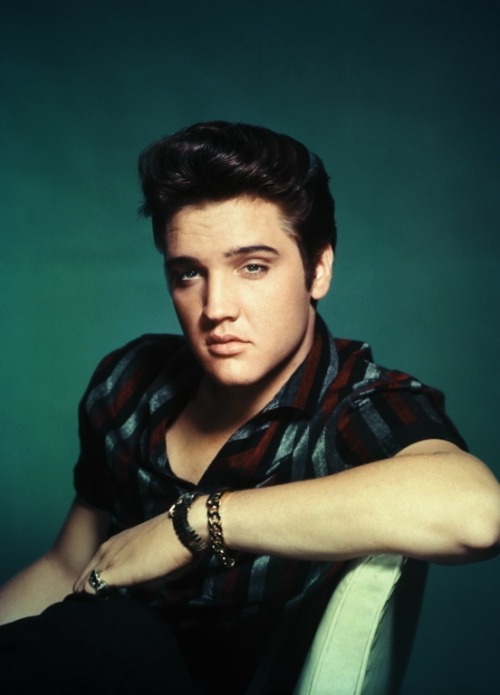
In 1981 Nichopoulos testified in his own defense that he did not overprescribe drugs for Presley. Instead, he claimed he tried to take control of his patients' addictions, patients that included Presley, Jerry Lee Lewis and seven others.
Nichopoulos testified that all his patients named in the indictment had been getting drugs from other sources and that he had ordered placebo pills from the drug manufacturer, according to The New York Times.
"The goal with all these people was to control the medication," he said in testimony.
At the time prosecutors showed evidence of narcotics, stimulants and sedative prescriptions written for Presley. In the last 2½ years of the singer's life, the pills added up to more than 19,000 doses, or roughly 20 pills a day.

